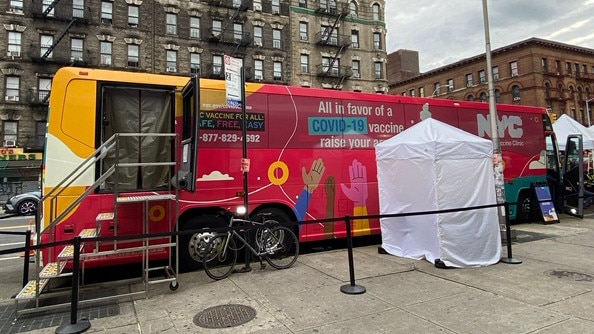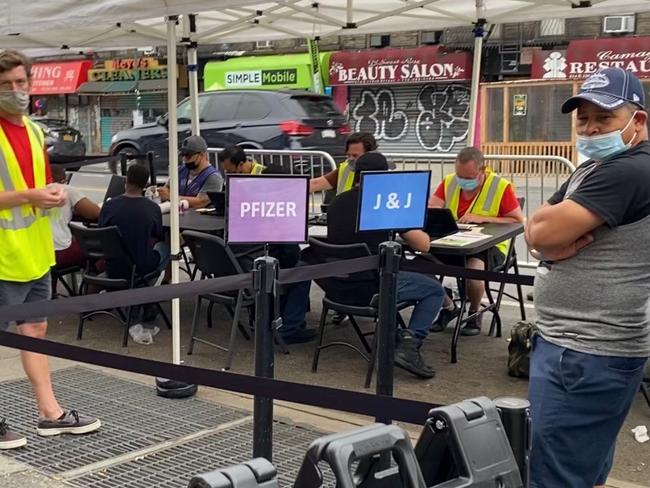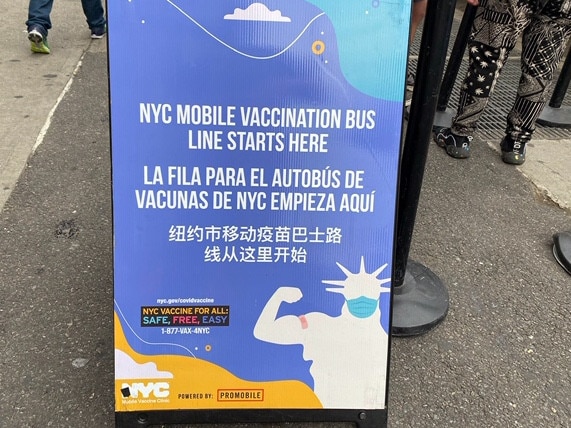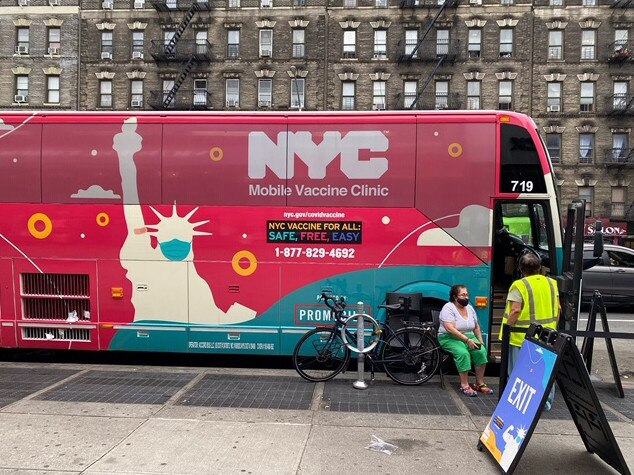Mobile Covid vaccine clinics: How Australia can learn from US rollout
The rest of the world is rapidly getting free jabs. This could be a way Australia could overcome our nightmare booking system.
Coronavirus
Don't miss out on the headlines from Coronavirus. Followed categories will be added to My News.
One of the most common criticisms of the US healthcare system is that it’s unaffordable and inaccessible – especially for residents not covered by costly private insurance.
Yet, despite the absence of a unified healthcare system, even the US has managed to vaccinate more than 50 per cent of the population against Covid, with some states already above 70 per cent. That’s compared to Australia – which claims to have one of the best healthcare systems in the world – where just 15.9 per cent of the population has been fully immunised and 33.8 per cent of people have had the first dose, according to Our World Data.
In Australia, which initially fended off the virus by slamming shut its borders, almost two-thirds of the 25 million population remained in lockdown on Thursday amid an outbreak of the Delta variant.
And while the country struggles to speed up its slow vaccine rollout and reach targets that will lift lockdowns and reopen borders, many other parts of the world continue to show what we could be – but aren’t – doing to get there.
Mobile and pop-up vaccine sites for free walk-up jabs and Covid testing are increasing across the US as cities wind down mass vaccination sites.
In New York, once the epicentre of the coronavirus pandemic, a fleet of roaming vaccine vans and buses offer a variety of Covid vaccine shots delivered on the spot everywhere from busy streets and neighbourhoods to outside subway stations, ferry terminals, churches, and night life venues. The vehicles change location every one to three days.
Appointments are not required and patients can join the queue for the vaccine of their choice: Pfizer, Johnson & Johnson, or Moderna.


Community Health Advocate Cheikhou Ann from the Institute For Family Health in the Bronx said at least 150 people received the jab at each vaccine bus every day.
“Sometimes people don’t have access to the hospital or just cannot find an appointment or don’t know where to get it,” he said.
“So by coming around the community we get them closer to where they can get the vaccine.”
The roaming vaccine clinics – which have also been operating in the UK and Asia for months – travel to “wherever the vaccination (rate) is low” and where vulnerable people are most at risk, he said.
“It’s about making it as easy as possible for the community to get vaccinated,” Mr Ann added.
Our #COVID19 mobile vaccination bus is on the road, bringing protection to our undocumented or unhoused residents. We'll make sure every New Yorker has access to the vaccine.https://t.co/simq5n8CbZpic.twitter.com/LzsEuLjLPi
— City of New York (@nycgov) April 13, 2021


While vaccinations are available by appointment at various vaccine hubs and in medical clinics and pharmacies throughout Australia, many residents have reported long waits for appointments or have been deemed ineligible for the jab, amid a shortage of supplies.
Vaccine sites are set to be ramped up and will coincide with an expected increase in the availability of Pfizer, with enough doses due to arrive in Australia to open up access for all over-30s from September 1.
Plans for drive-through vaccination hubs have also been finalised, and are expected to be rolled out starting next month as part of the federal government’s ambitious plan to vaccinate at least 70 per cent of the population by Christmas.
megan.palin@news.com.au | @Megan_Palin
Originally published as Mobile Covid vaccine clinics: How Australia can learn from US rollout


